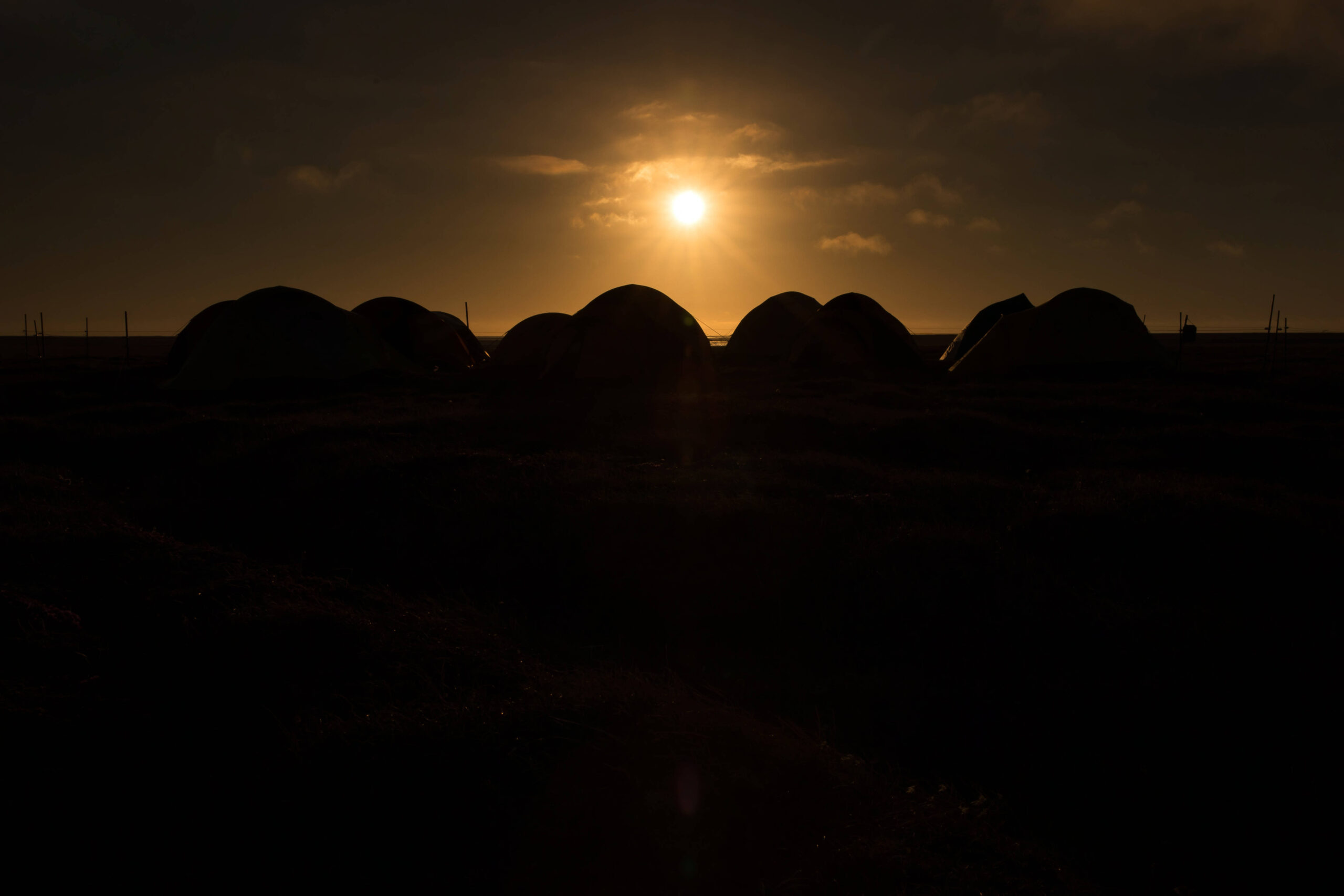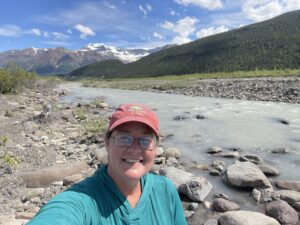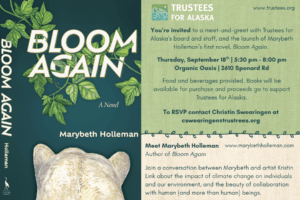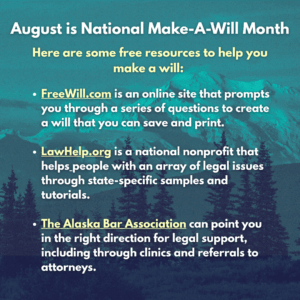
Alaska News Brief August 2025— Darkness before the dawn
In 1650, after living through about eight years of civil war in England, the author and preacher Thomas Fuller wrote “It is always darkest just before the day dawneth.” For everyone who cares about the principles our country once held dear—freedom, equality, democracy, civil rights, social justice, environmental stewardship, public service, rule of law, and just plain common decency—we are living through some pretty dark days ourselves, and we appear to be on a path toward even greater darkness. There’s no telling how far we’ll fall or when we’ll be able to turn things around.

Porcupine Caribou Herd crossing a river in the Arctic Refuge. Photo by Gary Braasch.
As a law firm, Trustees for Alaska has valuable skills to contribute in the effort to reassert our nation’s cherished values, but we are not immune to the feelings of despair rippling across Alaska and the nation. It’s easy to wallow in the daily headlines, jumping from one catastrophe to the next. So, I’m frequently asked, “With everything going on, what gives you hope for a brighter future?” It’s a difficult question and, to be perfectly honest, there are many days when hope eludes me.
On the better days, I try to remind myself that our country has survived a lot already, and that our darkest chapters were sometimes followed by big leaps forward. The United States of America has deep roots in the ugly institutions perpetuating injustice, including the horrors of an economic system dependent upon human slavery, an expansionist movement resulting in Native American displacement and genocide, a patriarchal social structure that exploited and disenfranchised women, an oligarchic form of capitalism that enriched a few, impoverished many, and ravaged the natural world, as well as many other forms of injustice. Although we are still living with these harmful legacies, the visionaries and organizers among us have never given up, and I am grateful for their sacrifices.
The good news is that, in the face of injustice, Americans have responded vigorously and achieved major steps forward that must have seemed impossible just a few years prior. Some examples include the 15th and 19th Amendments to the U.S. Constitution (granting voting rights to Black men in 1870 and then to all women in 1920), the National Labor Relations Act of 1935 (protecting the right of labor to unionize), the Civil Rights Act of 1964 (outlawing segregation and discrimination based on race, color, religion, sex, and national origin), the Indian Civil Rights Act of 1968 (granting civil rights to Indigenous people), the National Environmental Policy Act of 1970 (requiring consideration of environmental impacts in federal decision making) along with a host of other environmental laws in the 1960s-1980s, the Americans with Disabilities Act of 1990 (prohibiting discrimination based on disability), and the Hate Crimes Prevention Act of 2009 (expanding protections against hate crimes to include gender, sexual orientation, gender identity, and disability). These were all hard-fought victories. They required courage and commitment in the face of violence, oppression, and lawlessness. They succeeded because of the collective efforts of people from all walks of life, including community organizers, journalists, educators, economists, scientists, advocates, legislators, and attorneys.

An ice road in the NPRA. Photo by Wayne Svejnoha, BLM.
The bad news is that the pendulum has swung in the other direction. Instead of moving further forward, the achievements listed above and many others are under attack. Each of us is faced with a fundamental choice: Do we keep our heads down and ride it out? Or, do we summon the courage and commitment to protect what we value most? Every day, I see my colleagues at Trustees for Alaska and the people within our client and partner organizations choosing the latter. This, more than anything, is what truly gives me hope.
In response to climate denial and regressive policies pushing unrestrained oil and gas development in the Arctic, we are continuing the fight against the Willow oil and gas project at the Ninth Circuit federal court of appeals. More generally, we are working alongside Indigenous groups and local communities to protect public lands, mitigate climate change, and prevent the harmful impacts of oil and gas development on the Coastal Plain of the Arctic Refuge and in the Western Arctic.

Aerial image of the Mount Polley mine disaster. Photo by The Narwhal Canada.
In response to reckless and destructive policies of mineral dominance, we are remaining steadfast in the fights against proposed mega-projects, such as the Ambler Road, West Su Road, and Pebble Mine.
These ill-conceived projects would open up vast areas of Alaska to large-scale hard-rock mining, overwhelmingly for lucrative resources like copper and gold that are in no way “critical minerals” despite misleading rhetoric to the contrary. These projects would devastate caribou and fish populations and other resources essential to the traditional subsistence-based cultures that dozens of Alaskan communities have sustained for millennia.

Midnight sun skimming above horizon in the Arctic Refuge. Photo by Lisa Hupp.
In response to the proposed sell-off of enormous swaths of our most treasured public lands, we lent our support to the advocates before Congress that successfully eliminated these proposals from the recent federal budget legislation. We are fully prepared to keep fighting against an Izembek Refuge land exchange and other similar proposals that would trade away or sell off our public lands.
These may be dark days, but the disastrous consequences of the current regime’s policies are becoming more obvious. I believe the pendulum will swing back again soon. We can use that momentum to restore what we’ve lost and take some more big leaps forward. A new dawn is just beyond the horizon. It is up to all of us to make it happen, and I am growing more confident every day that we are up to the task.

PS. Thanks to supporters like you, we can continue fighting to protect Alaska’s land, water, air, wildlife and people.
Bloom Again—a book about us

The Porcupine caribou migration. Photo by Ken Madsen.




